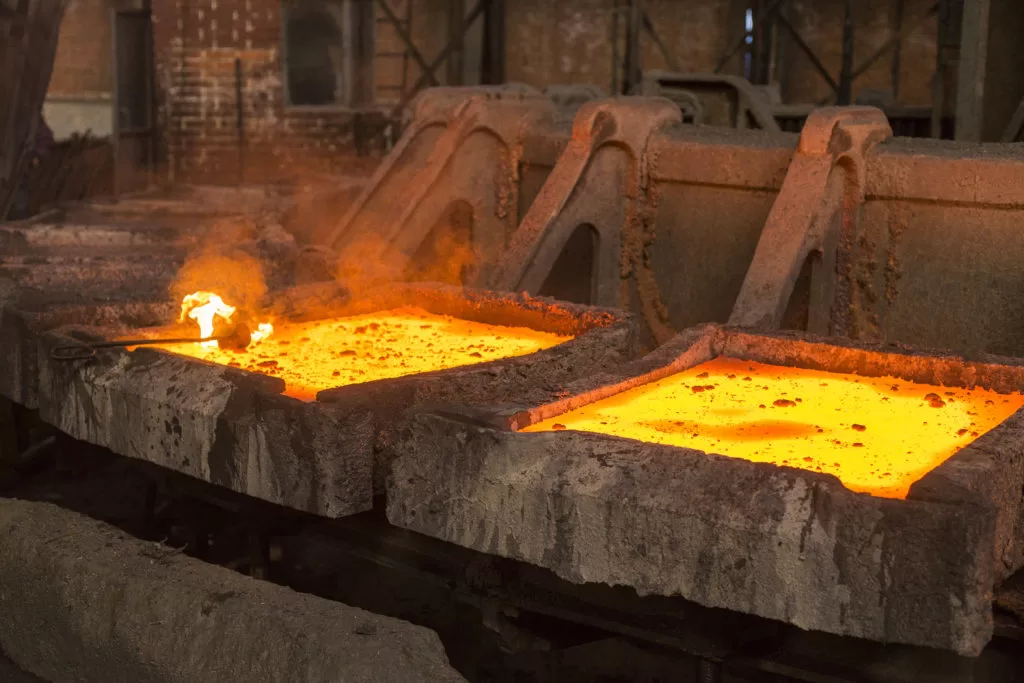Charcoal is shining brightly in various industries because of its versatile uses. It’s making a significant mark, especially in the metal smelting sector, due to its role as a sustainable reducing agent and an eco-friendly fuel alternative. The modern-day charcoal production methods are also drawing attention from industry practitioners. Let’s delve deeper into the transformative impact of charcoal on metal smelting.
Charcoal: The Powerhouse Reducing Agent
Produced through charcoal making machines, charcoal boasts unique structural and compositional properties that are pivotal for metal reduction reactions. Here are a few reasons why charcoal stands out as a reducing agent:
- Durability Under Heat: Charcoal’s main ingredient, carbon, lends it a high mechanical strength. This feature ensures that charcoal holds its shape and structure against the rigors of high temperatures during smelting, guaranteeing stable reduction reactions.
- Efficient Electricity Conductor: Charcoal effectively conducts electricity, a must in processes like electrolysis where electric energy needs to be transferred efficiently to facilitate metal ion reduction.
- Rich Carbon Content: Unlike other reducing materials, charcoal contains a high level of ‘fixed carbon’ – a type of carbon that doesn’t vaporize easily at high temperatures – providing enough carbon to reduce metal oxides effectively.
Charcoal as an Eco-friendly Energy Source
The massive energy requirement in metal smelting has traditionally leaned on fossil fuels, raising production costs and environmental concerns. Charcoal, however, promises a greener and more cost-effective solution.
- High Energy Value: Derived from biomass through pyrolysis, charcoal keeps moisture and volatile substances at bay, leaving behind a carbon-rich structure that releases more energy upon burning – perfect for achieving the high temperatures needed for metal smelting.
- Low Ash Content: With minimal ash production, charcoal ensures the longevity of smelting equipment and maintains metal product quality.
- Reduced Emissions: Thanks to its high carbon content and low ash proportion, charcoal burns cleaner than fossil fuels, reducing the carbon footprint and minimizing the release of pollutants; a win for the environment.
Innovations in Charcoal Production
Today’s charcoal production isn’t just about making charcoal; it’s about doing it right. Modern charcoal machines offer precise control over production parameters, from raw material choice to pyrolysis reaction conditions, ensuring the produced charcoal meets smelting needs.
- Controlled Production Processes: With these machines, creating the perfect blend of charcoal—rich in carbon and low in ash—is no longer left to chance but achieved through meticulous control over the production process.
- Sustainable Production Techniques: These machines not only turn biomass waste into valuable charcoal, reducing reliance on fossil fuels but also promote the principles of a circular economy and sustainable development.
As Indonesia continues to be a hotbed for commodity production, integrating charcoal into the metal smelting industry could spell a myriad of benefits, from reduced costs to a smaller environmental footprint. Charcoal’s role as both a reducing agent and an eco-friendly fuel positions it as an ideal candidate to address the dual needs of efficiency and sustainability in metal smelting.
Feel free to reach out for a tailored solution or any questions you might have about integrating charcoal into your industry’s practices.









